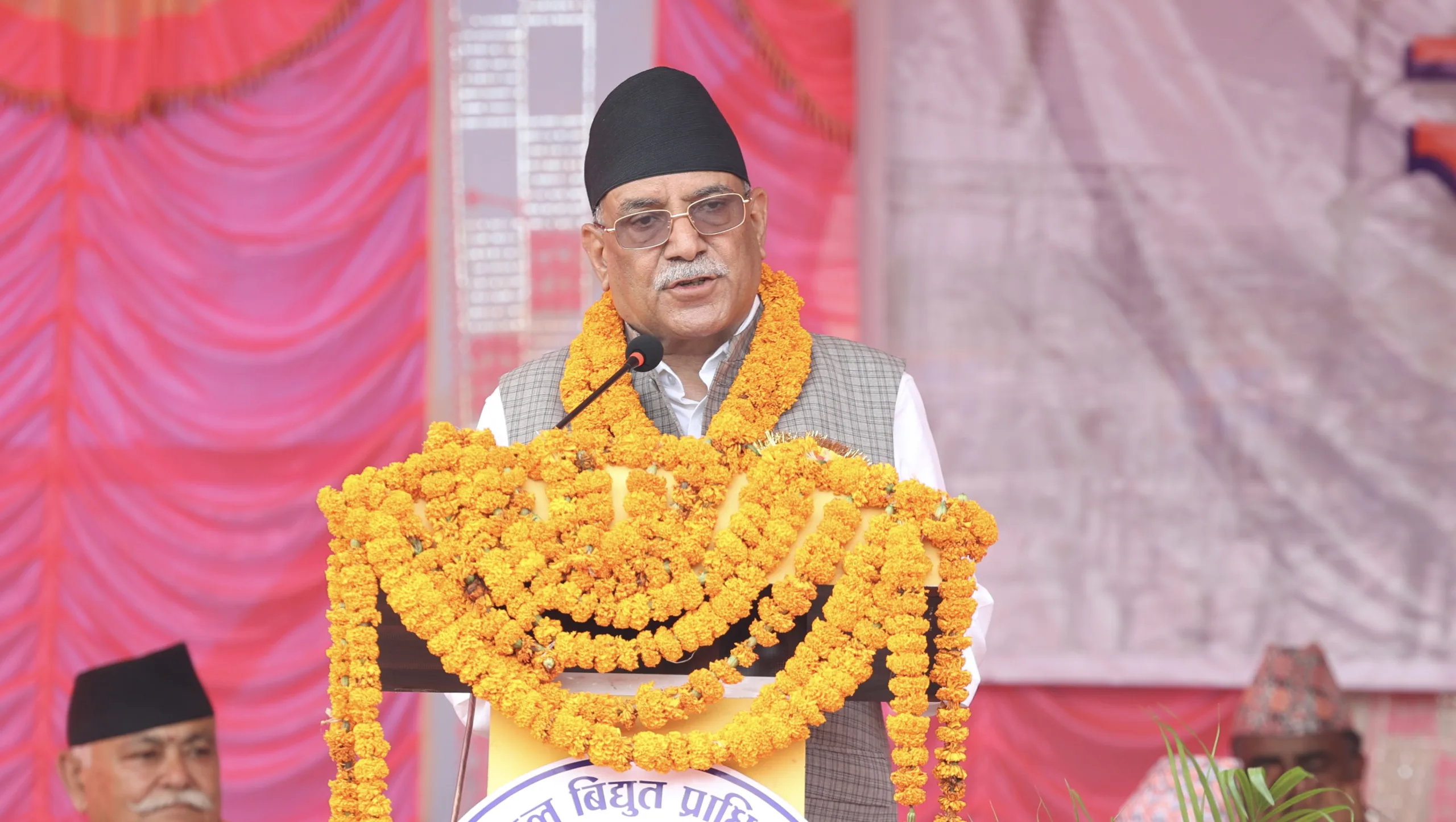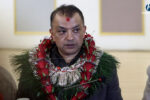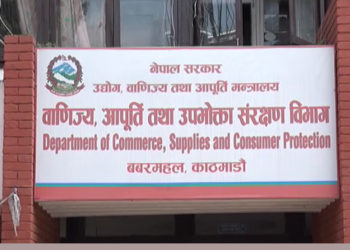KATHMANDU: Prime Minister Pushpa Kamal Dahal ‘Prachanda’ has stated that the completion of major infrastructure projects has brought renewed hope to Nepal amidst prevailing negative narratives.
Speaking at the inaugural ceremony of the Hetauda sub-station today, PM Dahal emphasized that the timely completion of large-scale infrastructure projects disproves the narrative that “nothing has happened and nothing will ever happen in this country.”
PM Dahal highlighted that the three major sub-stations will serve as critical backbones for domestic electricity supply and facilitate bilateral power trade between Nepal and India, as well as sub-regional and regional power trade.
He asserted that these infrastructures mark significant milestones in the development of Nepal’s energy sector and the country’s path to prosperity.
The Prime Minister shared that the expansion of east-west and north-south transmission and distribution lines has been accelerated.
Reflecting on his tenure, PM Dahal mentioned his government’s success in ending power outages and proudly noted that around 95 percent of the country now has access to electricity from the national grid.
Including alternative energy sources, approximately 99 percent of the population has access to electricity.
PM Dahal announced ongoing efforts to achieve 100 percent electrification within a year and a half, instructing the Ministry of Energy and Nepal Electricity Authority to ensure the provision of sufficient, reliable, quality, and safe electricity services.
He also encouraged increased domestic consumption of electricity.
“I regard the construction of infrastructures capable of supplying around 4,000 megawatts of electricity as a crucial milestone for the country’s energy development,” PM Dahal explained.
He described the Hetauda sub-station as a new hub for east-west power supply, additional power supply to India, and regional power trade.
He also stressed the growing technical capacity of Nepali engineers and technicians, who designed and supervised the construction of the three 400-kV sub-stations.
PM Dahal called for leveraging this knowledge and skill in other projects.
Regarding international power trade, PM Dahal expressed optimism about significant achievements in implementing long-term power trade agreements between Nepal and India.
He recounted discussions with Indian Prime Minister Narendra Modi focused on the strong implementation of past bilateral agreements.
The Prime Minister highlighted that Nepal exports electricity to India for six months during the rainy season but imports it during the winter to fill the domestic production gap.
He anticipated that Nepal would become a net exporter of power, positively contributing to foreign exchange reserves and reducing the trade deficit with India.
He also mentioned the final phase of preparations to export around 40 megawatts of surplus rainy season power to Bangladesh.
Addressing the challenges in constructing transmission lines, PM Dahal cited issues such as using forest areas, tree cutting, and land acquisition.
He urged local communities to support, rather than obstruct, the construction of strategically important transmission lines.
He emphasized the importance of addressing justified local demands and called on local government and administration bodies to provide necessary cooperation.
PM Dahal also mentioned the government’s progress on strategic hydropower projects, including the Upper Arun (1061 megawatts), Dudhkoshi reservoir-based (635 megawatts), and Budhigandaki Reservoir Hydropower Project (1200 megawatts). These projects, he said, are essential for Nepal’s journey towards prosperity.
Finally, the Prime Minister noted the increasing attraction of domestic and foreign investors towards Nepal’s hydropower sector, attributed to the government’s investment-friendly policies.
The inaugural event was attended by Minister for Energy, Water Resources and Irrigation Shakti Bahadur Basnet, Chief Minister of Bagmati Province Shalikram Jamkattel, federal parliamentarian Deepak Bahadur Singh, and Nepal Electricity Authority (NEA) executive director Kulman Ghising, among other dignitaries.









Comment